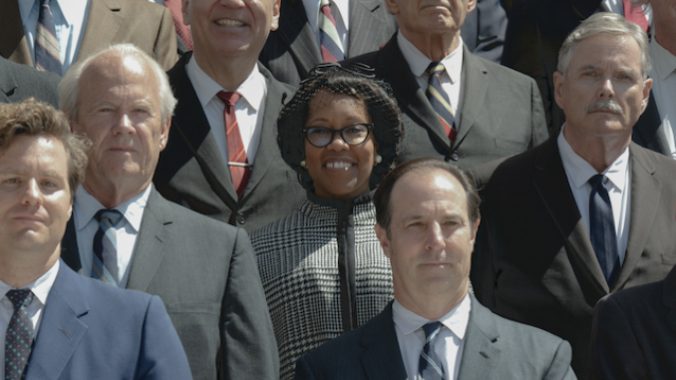Political Trailblazer Shirley Chisholm Gets Too-Shallow Biopic

Since 2016, we’ve all been more or less in agreement that we’re living in the worst timeline. Netflix’s Shirley (not to be confused with Josephine Decker’s film of the same name) may leave you thinking that a far better alternate universe would be the one where congresswoman Shirley Chisholm actually got elected to the White House. Not much about writer/director John Ridley’s biopic of the trailblazing politician stands out—it’s more interested in deifying Chisholm than interrogating her counterintuitive campaign choices—but based on what it gives us, she would’ve been pretty great.
Chisholm, a former schoolteacher, became the first Black woman elected to Congress in 1968. She served seven consecutive terms from 1969 to 1983. But Ridley’s film primarily focuses on Chisholm’s 1972 presidential campaign, which made her the first Black candidate for a major party nomination. Despite the establishment’s refusal to take her seriously, Chisholm (Regina King) runs a very serious campaign, where she’s forthright about the issues she cares about, suffers no fools and is passionate about engaging young voters (the 1972 election was the first that allowed 18-year-olds to vote). Ridley presents Chisholm as unimpeachable, and though it often feels like the other characters are constantly trying to refute that claim, the writer/director prefers to drown them out rather than give them credence, ultimately to Shirley’s detriment.
-

-

-

-

-

-

-

-

-

-

-

-

-

-

-

-

-

-

-

-

-

-

-

-

-

-

-

-

-

-

-

-

-

-

-

-

-

-

-

-








































